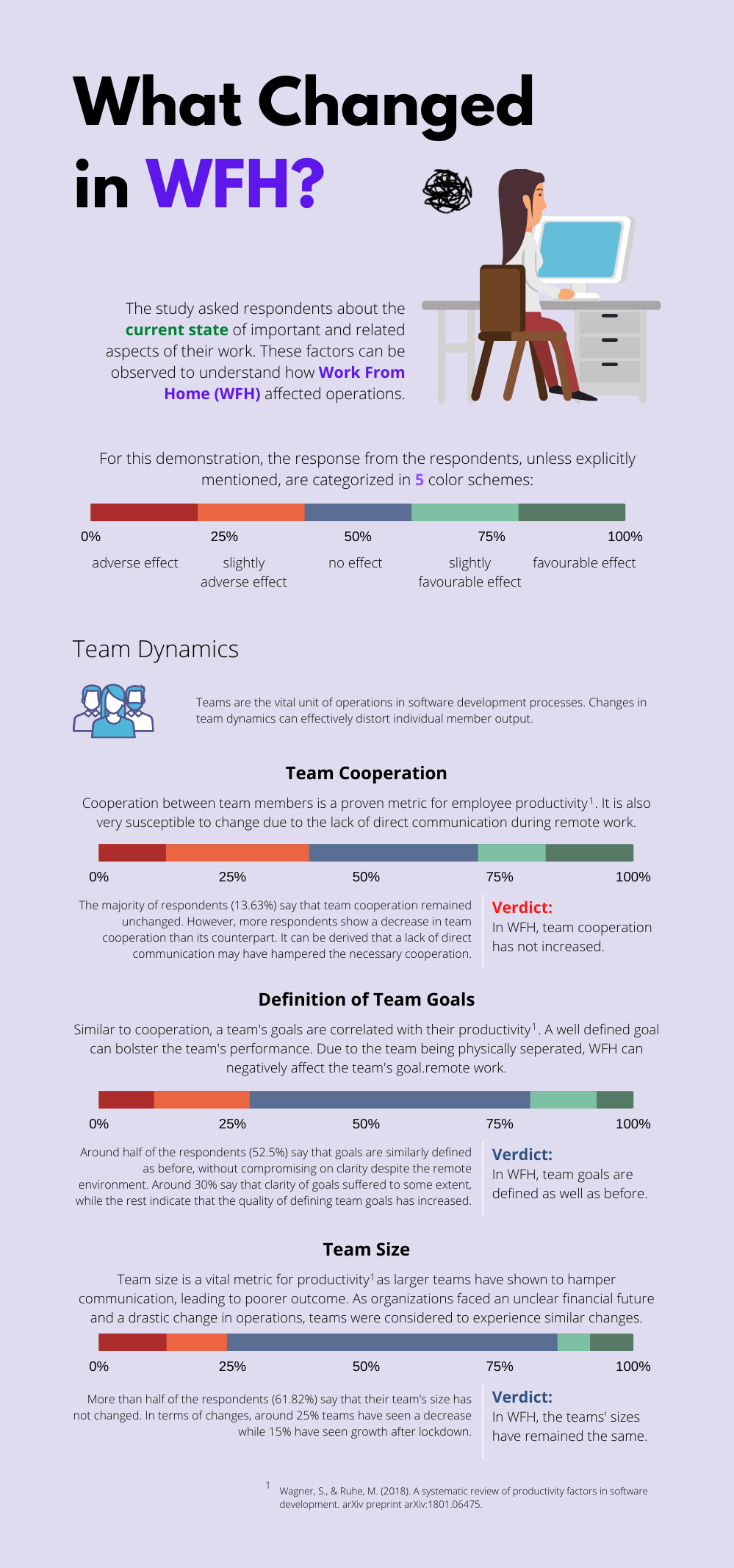Can WFH be the New Norm?

The COVID-19 pandemic has reshaped our way of life in many ways in the past 5 months of lockdown. This includes the professional workforce. Organizations closed down their offices, and workers and managers had to operate remotely. As a result, Work From Home (WFH) quickly became the new mode of operations for the majority of the population.
One of the earliest industries to adopt WFH in Bangladesh was the software development industry or the Information Technology (IT) sector. With resources (mostly) distributable virtually, this sector saw a quick transition to remote operations. Now, after months of functioning in the WFH set-up, a new question arose naturally: “Can WFH be extended after the lockdown is lifted?”
Globally, and before the pandemic even began, WFH had already seen industry-wide examination and adoption. In our country, however, remote work had not been considered in earnest due to fears of resource scarcity and productivity loss. Now that the pandemic has forced us to not only consider but also adopt it regardless, an opportunity has come forth to better understand the effects of WFH and debunk or establish any conjectures made beforehand.
With that goal in mind, the Distributed Systems and Software Engineering (DSSE) Research Group of Institute of Information Technology (IIT), University of Dhaka conducted a survey study. Under the supervision of professor Dr. Kazi Muheymin-Us Sakib and with the assistance of Bangladesh Research and Education Network (BdREN), the research group surveyed over 1000 professionals in the IT sector of Bangladesh on their performance and environment in WFH. With 46 attributes examined, the study aims to demonstrate how different aspects of a professional’s work has been influenced by WFH and determine whether WFH positively or negatively affected a worker’s performance. Furthermore, the study shows the change in productivity and its relation with the different attributes in question.
The results, as detailed in the charts below, show that the effects of WFH are not homogenous, with both positive and negative consequences to remote work. However, it does demonstrate its viability in the long run, provided that necessary steps are undertaken to negate the unwanted outcomes.
Respondents of the Survey
The target demographic of the survey were professionals in the IT sector of Bangladesh. This includes software firms, banks and other finance organizations, telecom companies, technology consultancies, IT and network services providers, and Information Technology Enabled Services (ITeS).
Among the randomly sampled 1237 total respondents, 106 still worked from their offices. Although not considered in the following analysis, this portion of the sample shows that not all professionals in the IT sector (e.g. the banking sector) were allowed the opportunity to work remotely. A further 69 responses were considered invalid as the respondents were not IT professionals.
Our study was based on the remaining 1062 respondents. Before analyzing their WFH performance and productivity, we can take a look at their basic information. These information - their age, gender, education level and more - establish a few preexisting notions and trends in the IT sector of the country. For instance, it is seen that 88.69% of the respondents are male, which is congruent with the male dominated industry. Other such patterns are demonstrated below.

The Effects of WFH
Next, we asked the respondents about 24 aspects of their work life and how those have changed after lockdown in WFH. These aspects include the state of the collaboration between team members collaboration, how much communication is conducted, their mental health and more. The aspects have been determined based on prior studies that show their correlation to productivity.
These aspects were categorized into 8 different sections: Team Dynamics, Company Dynamics, Team Collaboration, Access to Resources, Work Environment, Emotional Well-being, Proximity to the COVID-19 virus and others. This categorization has been based on the relation among the aspects.
For this demonstration, only the aspect of Team Dynamics is included.

Employee Productivity in WFH
The most important aspect of this survey is understanding employee productivity in WFH. We asked the respondents on how they perceive their current level of productivity. Their response will be analyzed and correlated with the aspects mentioned above to further understand the effect of WFH on the work itself. It will help us establish the longetivity of WFH as an official system of operations in the IT sector of Bangladesh, even after the lockdown is lifted.
For this demonstration, productivity based on the demographic aspects are shown. Works in the future will include detailed analysis of productivity, its correlation with the 24 aspects and their correlation to each other.

What’s Next?
These findings are only a demonstration of the primary descriptive analysis on the survey’s data. A detailed analysis will follow which will include extended insight into the effects of WFH with all 24 aspects, the correlation between those 24 aspects and productivity, inter-aspect relationships and more.
Although not complete, these findings contain indications towards actionable decisions for the IT industry. The responses show a mixed result for the impact of WFH and how it affected employee productivity, which varied for different categories of respondents. However, a mixed result can still help promote WFH. The economic factors and logistical aspects of WFH have not been reported, which include time and effort expended on transportation, city traffic, office maintenance and more. Since it can mitigate these expenses, WFH can be treated as the preferred method of operations, even after lockdown. Further research is currently being conducted to establish or disprove these claims.
Associated Paper
More details on the methodology and primary results of the study can be found in this paper: https://arxiv.org/abs/2008.11636.
For Further Communication
- Dr. Kazi Muheymin-Us Sakib (sakib@iit.du.ac.bd)
- Syed Fatiul Huq (bsse0732@iit.du.ac.bd)